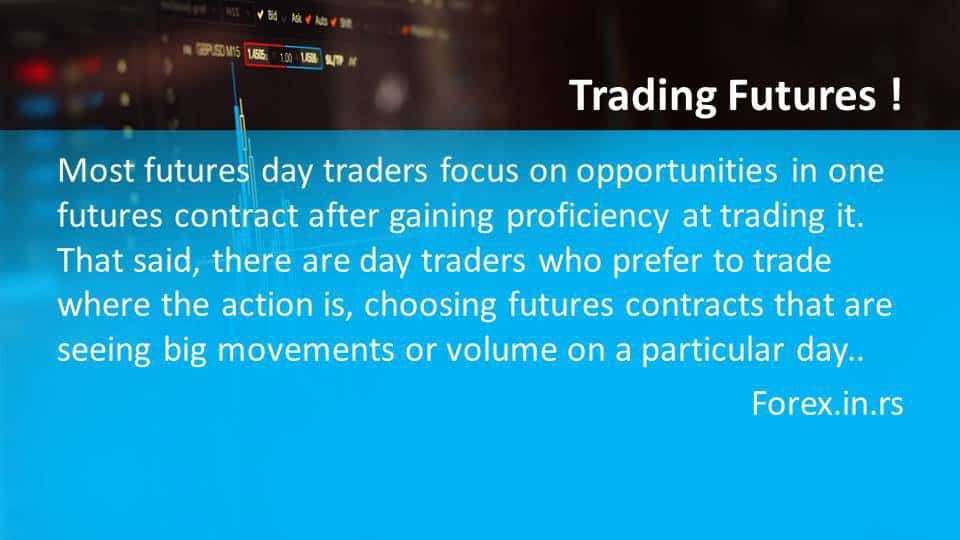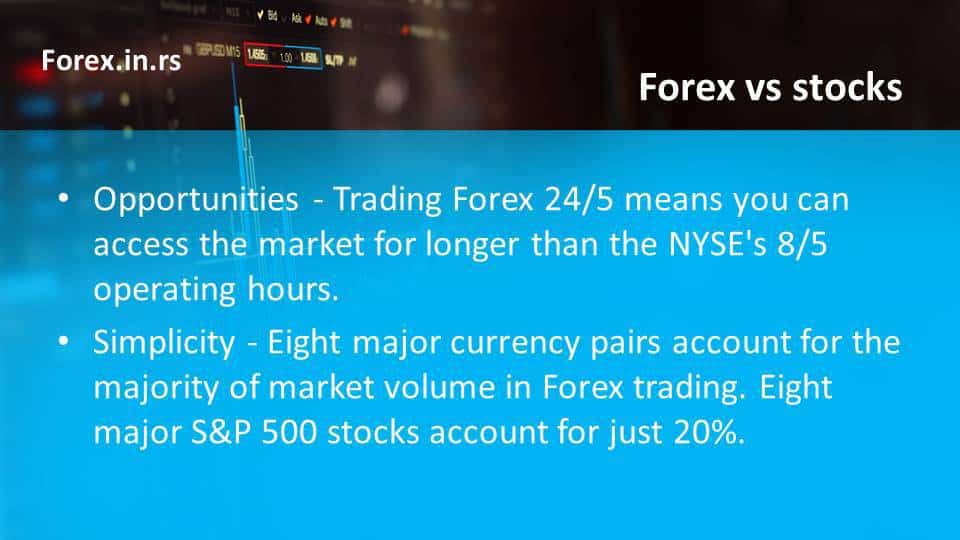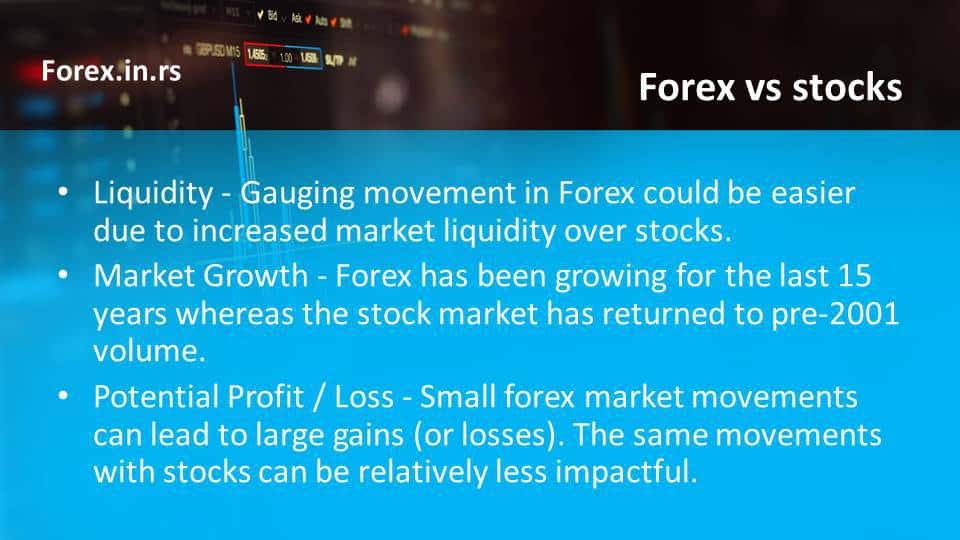Table of Contents
Have you been wondering about stocks vs. futures vs. forex? When people hear the term day trader’s mention, many individuals immediately think about the stock market. However, day traders are also known to conduct trades in the forex and futures markets. Some days, traders tend to conduct trades regarding options for buying and selling. On the other hand, traders who concentrate on the options market are usually swing traders. This is due to holding placements for weeks or even days, not only for part of one day of trading activities.
Stocks vs. Futures vs. Forex
The main difference between stocks, forex, and futures lies in asset types, leverage, trading time, and fundamental impact. A value stock refers to shares of companies, futures are derivatives contracts that derive value from a financial asset such as a traditional stock, bond, or stock index, and forex represents the trading of a currency against each other as exchange rate pairs. Futures and forex trading have higher leverage (for example, typical leverage 1:100 for forex) than stocks trading. At the same time, forex can be traded 24 hours, five days per week, and futures and stocks only several hours per day.
Stocks vs. Futures vs. Forex: Key Differences
1. Ownership:
- Stocks: Buying shares means owning part of a company (equity ownership).
- Futures: No ownership of the underlying asset; only a contract to buy or sell it in the future.
- Forex: No ownership; trades involve exchanging one currency for another.
2. Market Structure:
- Stocks: Traded on centralized exchanges (e.g., NYSE, NASDAQ), with specific market hours.
- Futures: Traded on regulated exchanges (e.g., CME, ICE), with set contract terms and expiration dates.
- Forex: Decentralized, operates 24/5 globally across multiple financial institutions and brokers.
3. Leverage:
- Stocks: Limited leverage (usually 2:1 for retail traders).
- Futures: Higher leverage (10:1 to 20:1), determined by margin requirements on exchanges.
- Forex: Highest leverage (50:1 to 500:1), depending on broker and regulatory limits.
4. Trading Hours:
- Stocks: Limited to regular market hours (e.g., 9:30 AM to 4 PM EST) with after-hours trading available.
- Futures: Limited to exchange hours but often offer extended or overnight trading for some contracts.
- Forex: Open 24 hours a day, from Monday to Friday, across different global time zones.
5. Risk & Volatility:
- Stocks: Risk of individual stock volatility (company-specific events), with moderate overall market volatility.
- Futures: Higher volatility due to leveraged positions and market dynamics of commodities, currencies, etc.
- Forex: High volatility, influenced by global economic data, political events, and market sentiment.
6. Participants:
- Stocks: Mostly individual investors, hedge funds, and institutions looking for long-term growth or dividends.
- Futures: Speculators and hedgers (e.g., commodity producers, financial institutions).
- Forex: Central banks, financial institutions, corporations, and retail traders, primarily for speculation and currency hedging.
7. Contract/Position Size:
- Stocks: Can buy as few as one share; no expiration.
- Futures: Standardized contract sizes (e.g., 1 contract = 1,000 barrels of oil); has expiration dates.
- Forex: Lot sizes (micro, mini, standard); positions can be customized, and there’s no expiration.
8. Regulation:
- Stocks: Highly regulated by bodies like the SEC (U.S.) and national regulators.
- Futures: Centralized regulation by exchanges and bodies like the CFTC (U.S.).
- Forex: Less centralized, with varying levels of regulation based on country and broker.
9. Costs:
- Stocks: Commissions or brokerage fees (though commission-free trading is becoming more common).
- Futures: Includes both commissions and margin requirements, with additional exchange fees.
- Forex: Typically commission-free, with costs embedded in the spread (difference between buy and sell prices).
10. Expiration:
- Stocks: No expiration; can hold indefinitely.
- Futures: Have fixed expiration dates, requiring rollover or settlement at contract end.
- Forex: No expiration, but positions may incur swap fees if held overnight.
11. Price Influencers:
- Stocks: Company performance, earnings reports, sector performance, and macroeconomic data.
- Futures: Influenced by supply-demand factors, global events, and underlying asset performance.
- Forex: Global economic data, interest rates, geopolitical events, and monetary policies.
12. Profit Potential:
- Stocks: Gain from stock price appreciation or dividends; potential for long-term capital growth.
- Futures: Profit from both upward or downward price movements (buying/selling contracts); often used for short-term gains.
- Forex: Profit from changes in currency exchange rates (speculating on currency appreciation or depreciation).
13. Liquidity:
- Stocks: High liquidity in large-cap stocks, but lower in small-cap or less traded stocks.
- Futures: High liquidity in popular contracts (e.g., S&P 500, crude oil) but lower in less popular ones.
- Forex: Highly liquid, especially in major currency pairs (e.g., EUR/USD, USD/JPY).
Main facts about stocks :
A stock is a type of security whose flexibility increases, representing a claim on its assets and earnings.




If you desire such trading hours forts, you must concentrate on thirty practicesregarding one particular market. However, you have mastered the place their trades to attempt to try other markets; when considering day trading in stocks, it is essential to comprehend some primary factors.As well as maximum capital for stock trading
According to United States law, there is a minimum commencing capital requirement in day trading stocks, which has been set forth as $25000 (twenty-five thousand dollars). To ensure that you have more than the minimum requirement, commencing with the capital for thirty thousand dollars is recommended.
Market hours for day trading stocks run from nine-thirty in the morning until the afternoon, based on Eastern time. Several day traders also trade during this hour, just heading out after the market’s opening. As a result, this scenario is referred to as thearedepend
Many believe that the prime time to engage in trades is when the rate of volume and the level of volatility tend to be high. They are noticed to be high around eight-thirty in the morning to ten-thirty in the morning and three to four in the afternoon, all based on Eastern time.
The trading system can include many different kinds of stocks. Stocks are permitted to be traded daily, which is what most traders tend to do. They may also engage in research to discover new stocks to trade daily or weekly.
With these factors in mind, one will comprehend whether the stock market is where the trader desires to place their focus. If someone does not possess capital for thirty thousand dollars, then engaging in trades about futures and the forex is a good idea. If you cannot conduct trades at the hours regarded as the optimal trading times, then your trading activities will probably not result in the success you would like to see.
Facts about Futures – stocks or futures
A futures contract is an agreement traded on an organized exchange to buy or sell assets at a fixed price but delivered and paid later.
When considering futures regarding trading, it is also essential to consider some prime factors. We can quickly compare futures vs. stocks day trading:




The benefit of using futures for the sake of day trading is that there is no requirement for a minimum legal amount. It is advised to commence with capital of two thousand five hundred dollars up to seven thousand five hundred dollars if you hope to conduct trades in popular futures such as the E-mini S&P 500. When you have more money, this increases the flexibility you possess in terms of the decisions you make regarding trading.
The official hours for trading in terms of the E-mini S&P 500 are regarded as being from nine-thirty in the morning until four in the afternoon. It is also realized that several day traders engage in placing their trades at the time that is just before the market’s opening, which is acknowledged as being the pre-market.
Then in consideration of day trading when it comes to forex, it is imperative to be mindful of some primary factors also.
If you desire to conduct trades related to forex, you will need to possess five hundred dollars as the minimum amount to get started. However, the recommendation is to commence with five thousand dollars if you want to see a profitable stream of income each month.


As we know, the main facts about forex we can easily compare with stocks (read our article forex vs. stocks):
Forex trades are highly convenient as they can be traded for twenty-four hours per day, from five in the evening on Sunday until five in the evening on Friday. However, it noted that not all these times tend to be the best option in day trading.
The prime times for conducting day trading in regard or forex is dependent on the pair that will be traded. The British pound and US dollar combination do well when traded from four in the morning until six in the morning Eastern time and from eight in the morning until eleven in the morning Eastern time.
























